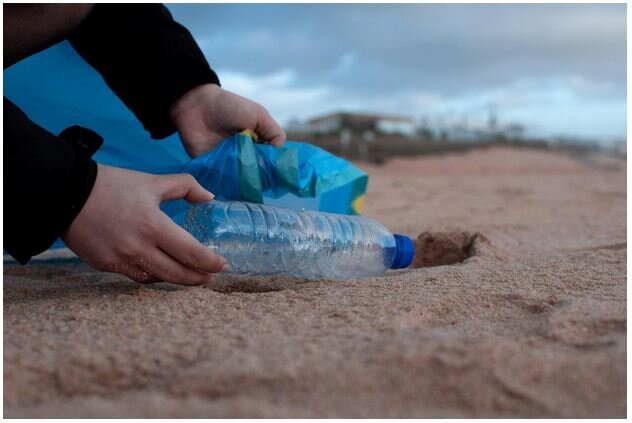News and Information at the intersection of energy, the environment and the economy.
The Official Blog of The Jia Group
We stay up-to-date with implementing the best sustainability and environmental, social and governance (ESG) strategies. You can too by seeing what we’ve learned.
Read our Books
Sold in over 25 countries, our books have guided students, executives and business leaders on how to search for opportunities in the cleantech sector.
Featured Posts
Subscribe to our Newsletter

How to Expand Your Business and Minimize Your Carbon Footprint at the Same Time
Businesses are always looking for ways to expand and reach new customers, but it's important to do so in a way that is sustainable and doesn't damage the environment.

A Simple Guide to Implementing Decarbonization Within Your Organization
In order to halt the disastrous effects of climate change, it is imperative that we take swift and significant action now. One crucial way to do this is through decarbonization – reducing greenhouse gas emissions from all aspects of our lives. Implementing decarbonization within your organization can seem daunting, but it can be done relatively quickly with careful planning. This article will outline a simple guide to help you get started.

10 Ways Climate Change Affects Small Businesses: How to Prepare for the Future
Global climate change is a reality. It's happening all around us, and it's affecting small businesses more than we might think. The good news is that there are steps business owners can take to prepare for the future. In this blog post, we'll discuss ten ways climate change affects small businesses, and we'll offer tips on how to get ready for whatever comes our way.

Eco-Friendly Office Cleaning Tips
Many of us are working towards a greener life at home, but what happens at the office? Toxic household cleaning chemicals are well documented, along with the damage they cause to the environment. Ethical shoppers are spending more time shopping, choosing eco-friendly cleaning products, but is the same care being taken in cleaning the office?

Reflections on COP26
There were moments of optimism and frustration about the conference. About 110 countries and about $14 billion of funds have been committed to stopping deforestation, which is fantastic. This is also the first time that the private sector has agreed to the commitment. But then, this is not the first time that countries have signed deforestation commitments. The 2014 commitment did not amount to much and there’s already signs of Indonesia having cold feet and positioning themselves to potentially withdrawing from this year’s commitment.


Climate Change: How Your Small Business Can Make a Big Impact
According to statistics, about 100 of the several businesses in the world are responsible for 71% of greenhouse gas emissions.
Greenhouse gas emissions are the nasty by-product of manufacturing that play a leading role in causing global warming.
Suffice to say; businesses should be at the forefront in promoting campaigns to manage climate change.
Albeit industries being the root cause for global warming, it is a necessary element for the development of humankind. More and more innovations keep arising, which have a significant impact on the environment.
It is a legal mandate for companies to ensure the responsible discarding of their waste in every country. Improper waste management is one of the leading causes of climate change.
As a business, your operations will most likely lead to an impact on the environment. It is your sole duty to ensure that you manage any impact you create on your environs.

Wisconsin Girl Scouts on a Mission to Educate an Industry
Girl Scout Troops 1477 and 1952 of the Wisconsin Badgerland Council decided they wanted to do a project to raise awareness about solutions to climate change. After looking into the biggest contributors to global warming, they were surprised to discover that embodied carbon of materials, especially concrete production, was a major factor. The Girl Scouts realized that among climate change topics, materials and concrete were less commonly discussed.
They also realized that as as Girl Scouts, they just might be able to reach a broader audience and have a material impact on a global challenge. The video they produced also turned out to be a wonderful opportunity for them to learn concepts in chemistry, engineering, architecture, planning, business, and policy, and to help them consider careers in these fields.

Climate Change Is Making Big Problems Bigger
New data compiled by the E.P.A. shows how global warming is making life harder for Americans in myriad ways that threaten their health, safety and homes.

ECO Business 101: How To Makes Sure Your Company Is As Green As Possible
One of the most important things that any business can do is to reevaluate its processes in terms of sustainability. The good news is many actions can be taken to ensure your business is running in the most eco-fiending way possible. Discover some of the simplest and most significant ones.

What’s Really Behind Corporate Promises on Climate Change?
Many big businesses have not set targets for reducing greenhouse gas emissions. Others have weak goals.

Reducing the Environmental Impact of Your Business
When it comes to your business, conversions and sales aren’t the only metrics you need to pay attention to. The environmental impact of your enterprise is also critical to your long-term success.

Opportunity Knocks: An Alignment of Finance and Climate Concerns.
A major opportunity has appeared that capitalizes on a seemingly contradictory, but fantastic convergence – the need to invest in climate actions with a general underfunding of energy efficiency measures in companies. Why fantastic? Let me explain.

The Business of Planting Trees
A business sustains its operations by making money. Revenues must be greater than expenses, and a successful business is able to repeat this year over year. To do so, they must manage risks to both sustain and grow revenue while controlling and lowering expenses. Businesses manage revenue-side risks by erecting competitive barriers to entry, investing in marketing and training a sales force. They manage expense-side risks by creating rules around fiscal discipline, developing risk-management policies and buying business continuity insurance.





